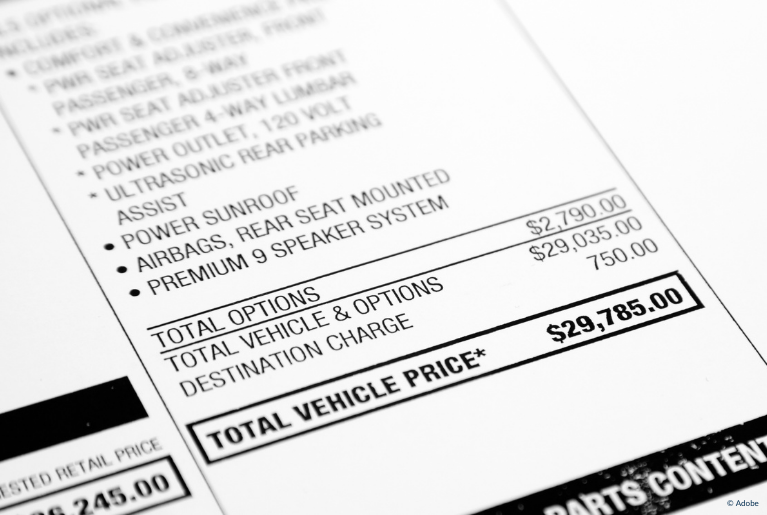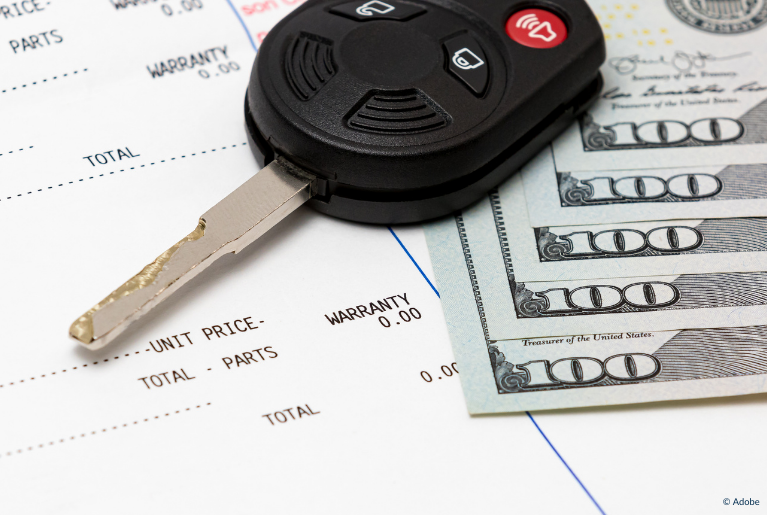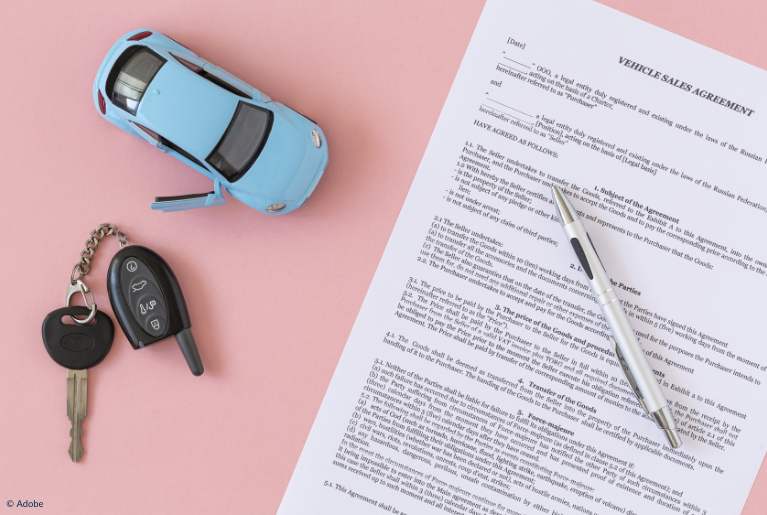Buying or leasing a car can be hard and stressful. Sometimes, the advice you need will depend on how far you are into the buying or leasing process. Our top 11 essential tips will cover everything you need to do before you visit the dealership lot, what to do once you get to the dealership, and what you need to know after you’ve purchased the car.
Here, we will briefly cover our advice on car shopping, research, dealerships and your legal rights. After reading our summarized 11 essential tips, you can learn about each topic in further depth with our Auto Buying Guide Series.
1. Research Your Desired Car
Do you want to get a car, truck, minivan or SUV? Do you want to buy or lease? Do you want a new car, a used car, or a certified pre-owned vehicle? Figure out which type of car best suits your needs, and narrow your search from there. Once you find a few car models you like, research these models. Look for consumer complaints, common issues, automaker documents and any important news about your chosen car models. Most importantly, find a few models that fit your desired price point.
2. Figure Out Your Budget
Figure out how much you’re willing to pay for a car. Some people need to finance their car, while others may pay the full price upfront. If you have to finance your car, look at the financing options offered by your bank or credit union, rather than those offered by the dealership. Contact different dealerships for prices and get competing quotes. Keep records of the prices you’re offered. Account for any fees and taxes you will have to pay on your car. Finally, take into account the cost of insuring a particular car.
3. Talk to Your Insurance Agent
Often, dealerships require you to have insurance before you buy or lease a car. If you already have car insurance, make sure it hasn’t lapsed! If you don’t have auto insurance, get a few policy quotes and select the plan that best suits your needs. California’s Department of Insurance conducts an annual survey on how much different auto insurers charge for a given level of coverage; you can compare rates here. Keep in mind the cost of insuring different car models, as some cost more to insure than others. The cost of insurance could be determined by the car’s price, potential cost of repairs for a car model, and your driving and safety record. Research any insurance discounts for which you might qualify.
4. Get The Vehicle’s History
If you’re buying a used car or a Certified Pre-Owned Vehicle, you should get a vehicle history report. These reports can be obtained if you have the vehicle’s identification number, or VIN. Vehicle history can alert you to many red flags with your car. Things to look for in this report include records of accidents or service, title history, vehicle mileage, previous owners, and where the vehicle has been sold. If any of these items look inconsistent with what your dealer tells you during a sale, this may also be a red flag.
5. Read the Window Sticker
This sticker, also called the Monroney Sticker, is legally required to be placed on the windows of vehicles being sold at authorized dealerships. The Monroney sticker will list the vehicle’s base price, list of standard features, the types of engine and transmission, and other government-required information.
6. Take Your Car For A Test Drive
You don’t want to buy a car that you’re not comfortable driving. Taking it for a test drive can help you discover issues with a car model, such as steering or braking. If you can, drive it in environments like those you navigate every day. Before you hop into the car, check for any issues on the exterior of the car. Your test drive should alert you to some issues with your car. However, other problems may not be revealed by an initial test drive.
7. Get A Vehicle Inspection
Some dealers may claim that your chosen car has already been inspected. However, you should always get the vehicle inspected by an outside party. Find an independent mechanic to inspect the vehicle. Inspections should account for the exterior, interior, under the car and hood, and systems such as tires, steering and suspension. Better to discover issues with your car sooner rather than later.
8. Learn About Types Of Auto Warranties
The California Lemon Law is a consumer protection law that makes automakers stick to the terms of their warranties. Two types of warranties trigger your lemon law protections. The first, implied warranty, is the expectation that goods are fit for the intended use. Goods branded “as-is” waive this right. The second, express warranty, is a written contract detailing exactly what automakers will cover and how long they will cover these things.
9. Avoid These Financial Traps
Watch out for cars sold “As-Is,” as this waives any warranties and associated legal rights. Keep in mind that warranties may not cover aftermarket accessories. If you applied for loans, do not take the vehicle home before the loans are approved by the bank. Be wary of extended service plans offered by third parties, as they do not offer protection under the California Lemon Law.
10. Go Over Your Auto Paperwork
Thoroughly go through all of the paperwork before you take the car home. Carefully reading over all of the paperwork is how you can avoid financial pitfalls and resolve anything before you sign any contracts. Use a calculator to double check the math. Make sure you’re not paying for options that you do not want. Then, keep all your documents organized.
11. Know Your California Lemon Law Rights
Brief yourself on the California Lemon Law and the Car Buyer’s Bill of Rights. The Bill of Rights requires dealerships to provide lists of what the consumer is buying and the consumer’s credit score. The California Lemon Law helps consumers with defective vehicles receive compensation or vehicle replacements from automakers.
If you have any legal questions regarding the California Lemon Law, feel free to contact us for a free consultation.
To access each post on our individual tips for purchasing a car, click the links in each section or scroll to the bottom of this post under “Read The Rest Of Our Auto Buying Guide” and click any one of the posts featured.
Lemon Law Help by Knight Law Group is an automotive lemon law firm that exclusively practices in California, with offices in Los Angeles, San Francisco, Sacramento and Orange County. If you are a California resident who purchased or leased a defective vehicle from a licensed dealership in California, we may be able to help you get rid of your potential lemon and recover significant cash compensation. Model year restrictions apply: 2020–Present vehicle models only.
However, we cannot help those who reside outside of California or purchased their vehicle outside of California unless they are active duty members of the Armed Forces, nor will we be able to refer them to a lemon law firm in their states.
To learn more about the California Lemon Law and your legal rights, visit our guide on the California Lemon Law for more information.














